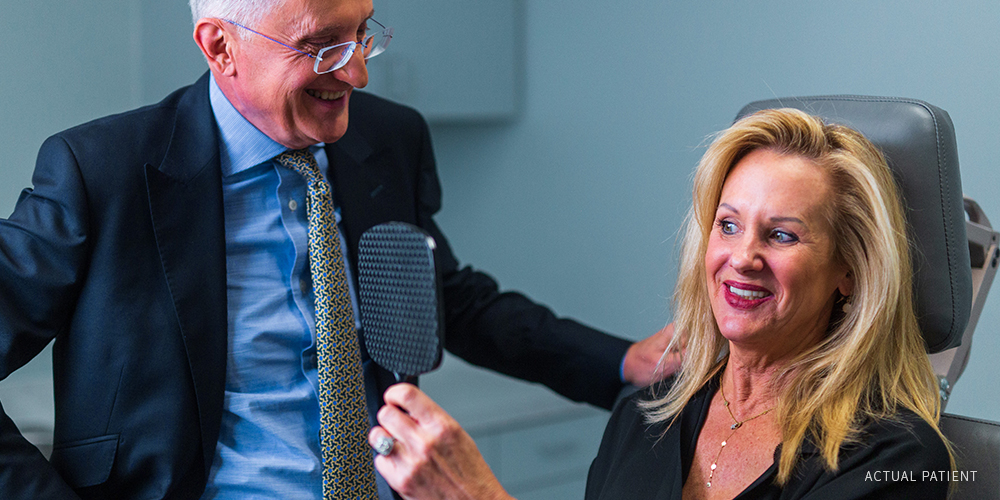
Dr. Craig completed her six-year plastic surgery residency at Yale and then moved to Houston for a microsurgical and cancer reconstruction fellowship at MD Anderson Cancer Center, where she was then recruited to become an Assistant Professor. She has trained as both a microsurgeon and reconstructive plastic surgeon for a wide variety of procedures. Dr. Craig and Dr. Fusi are committed to developing their surgical techniques with the world’s leading experts, providing Houston patients with the latest advancements in reconstructive surgery.
What is Skin Cancer?
3.5 million cases of skin cancer are diagnosed each year in the United States. Although skin cancer has high rates of recovery, the cancer will need to be removed and additional therapy considered to prevent recurrence. The three main types of skin cancer are:
- Basal cell: Small elevated bumps that develop in areas exposed to sun. The most common type of skin cancer, basal cell cancer grows very slowly and cure rates can be high especially when caught early.
- Squamous cell: Common in fair-skinned people, squamous cell cancer appears as a raised growth or bump on the skin. This form of cancer can quickly develop and spread to other areas of the body.
- Melanoma: The most aggressive form of skin cancer, melanoma is often (although not always) a brown or black spot that may also be asymmetric, have irregular coloration, uneven borders, or have a larger diameter. Melanoma tends to develop and grow as time passes, making early detection and treatment vital.
Skin cancer is most likely to develop in fair-skinned people who expose themselves to sun without protection and have members of their family with skin cancer.
How is Skin Cancer Diagnosed?
While your physician or dermatologist will confirm the existence of skin cancer during a diagnostic examination, you can recognize the following signs of skin cancer in its early stages:
- Asymmetry: One side of the mark is different from the other.
- Border: Rough, uneven borders.
- Color: Different colors visible.
- Diameter: Larger than ¼ inch or 6 mm.
- Evolving: Growing or changing shape over time.
If your doctor suspects skin cancer, he or she may perform a biopsy and send a sample to pathology for testing.
Can a Plastic Surgeon Remove Skin Cancer?
If you have skin cancer then it will need to be removed by a skilled plastic surgeon or dermatologist. Depending on the location, type, and size of the skin cancer, both a dermatologist and plastic surgeon may collaborate to provide you with the best aesthetic results. Skin cancer can be removed by:
- Excision: Most patients’ skin cancer is relatively small and contained within a well-defined area. Excision is the standard treatment for this type of skin cancer and the surgeon will remove the cancer as well as the margin, or borders, around the cancer.
- Moh’s surgery: A technique used for cancer with no defined border or on cosmetically sensitive areas, Moh’s surgery removes cancer layer by layer, microscopically examining each layer before closing the incision until the cancer cells have been completely removed.
Dr. Fusi and Dr. Craig are qualified to excise skin cancer and can either perform the entire surgery or the skin cancer reconstruction for Houston patients.
What Happens During Skin Cancer Removal Surgery?
Our doctors specialize in excising cancer with scar-minimizing techniques. On the day of your surgery after local anesthesia is administered, Dr. Fusi and Dr. Craig will:
- Make a small incision around the margins, or borders of the cancer.
- Evaluate the extent of cancer and remove tissue as a margin around the cancer. This tissue will be sent for pathologic review of the margin.
- Close the incision by suturing the wound, creating a flap or grafting skin from another area of the body if additional skin and tissue is needed.
Many Houston patients choose a plastic surgeon to perform the entire or reconstructive aspect of surgery to avoid scarring or additional reconstructive procedures.
How Long Will Recovery Take?
Although it will take weeks or up to a year for the scarring from your surgery to fade, recovery from skin cancer is generally short. The first few days after surgery you may experience:
- Soreness.
- Drainage.
- Redness.
These symptoms are easily managed and cause minimal pain and discomfort. Within one to two weeks most patients are able to resume normal activities after their sutures are removed.
If you have been diagnosed with skin cancer, contact four Houston office at (713) 346-9909.
